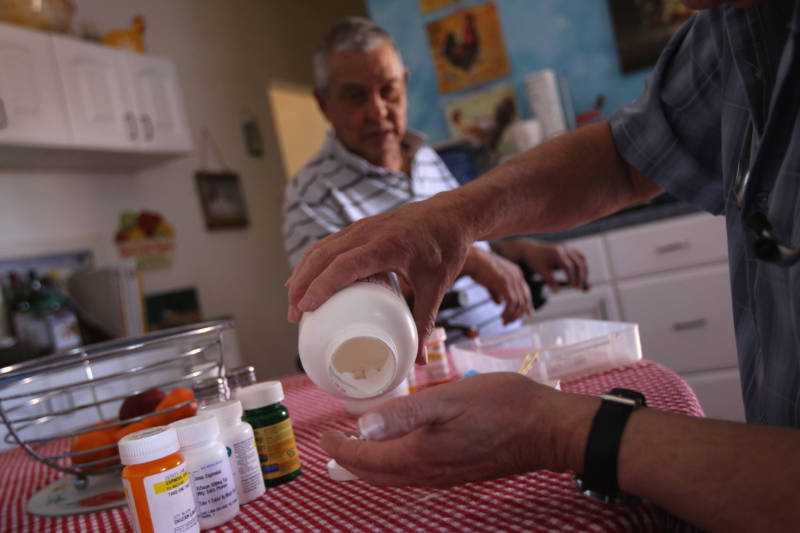PG&E’s planned power outages are sparking panic among people with health conditions who rely on electricity to power medical devices at home — devices that help them stay comfortable, or stay alive.
Patients who need oxygen machines running nonstop to breathe began calling their nurses as soon as the outages were announced, asking what they should do.
“We’ve dealt with power outages before, but never to this extent,” said Emma Baron, a nurse and vice president of quality, education and compliance at Hospice East Bay. “This is not that the electricity is out for 10 hours or six hours. This is going to be days, five or six days.”
PG&E decided to start cutting power to 800,000 customers in California earlier this week to reduce risks of wildfires amid forecasts of windy, dry weather. A PG&E spokesperson said Thursday that 29,819 customers with medical needs would be affected by the outages. These are households enrolled in the utility’s medical baseline program, which offers lower energy rates for older and disabled people who need extra power to operate ventilators, dialysis machines or mechanized wheelchairs.
PG&E to Customers With Disabilities: You Need to Prepare
Utilities tell these customers to plan for power loss by purchasing backup generators. But there are other medically vulnerable people who are not part of the program, who do not get this warning and are not sure what to do.
One of the first things the nurses at Hospice East Bay did to help patients in their care was go shopping.
Nurses called their medical supplier to order backup oxygen tanks that can run without power. They were told supplies were already starting to run low because of increased demand related to the outages.
